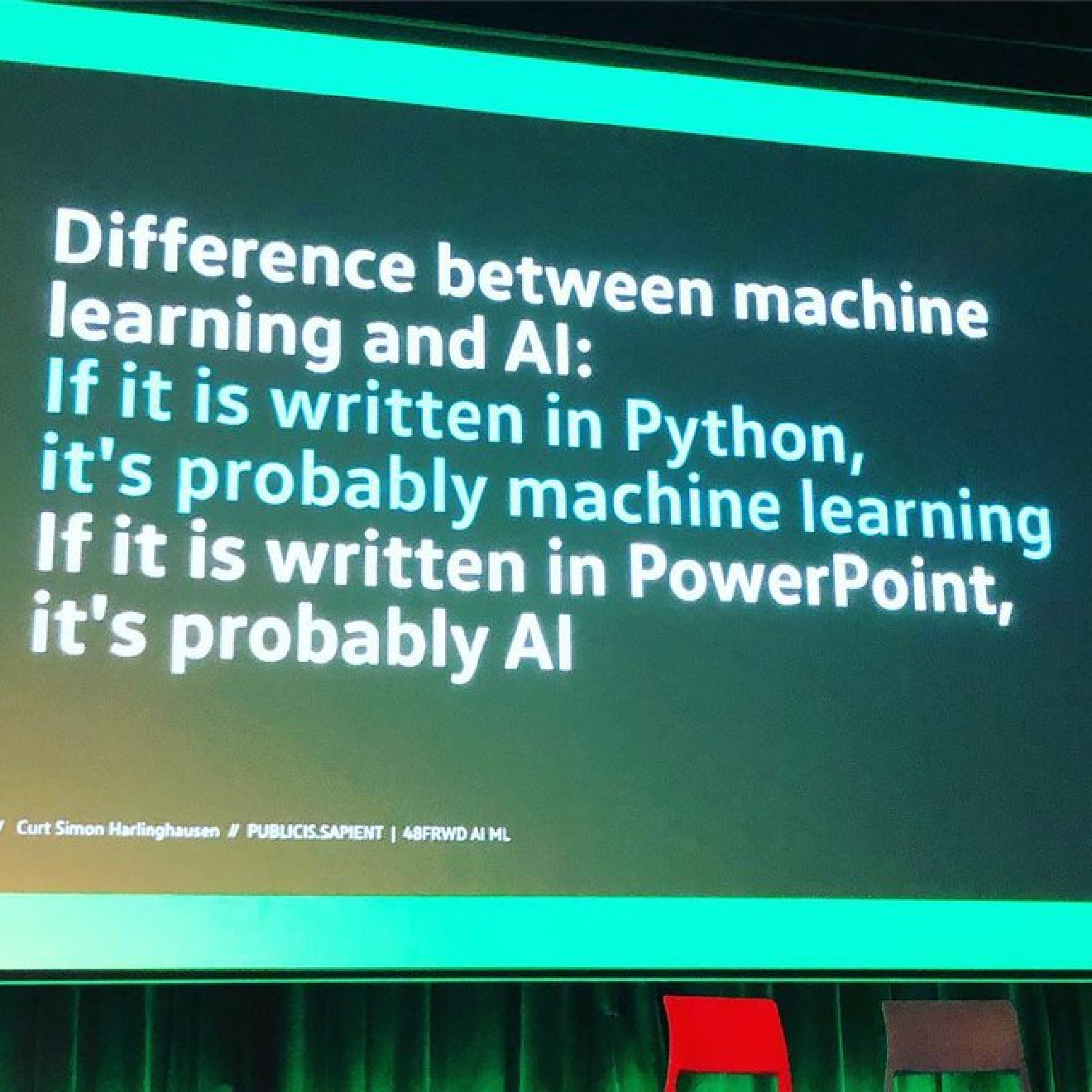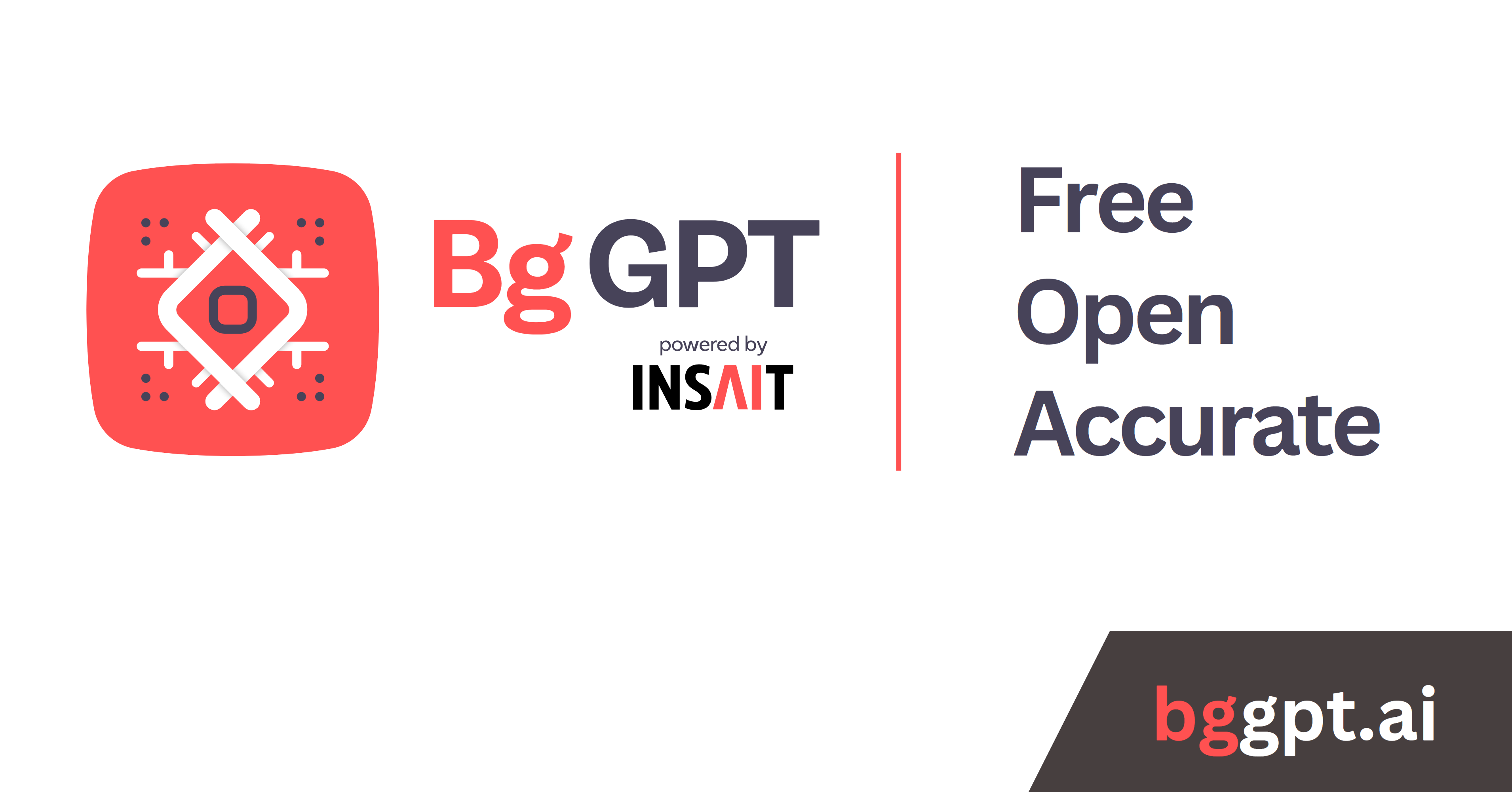
With much public fanfare, BgGPT, the first official large language model (LLM) tailor-made for Bulgarian language use, was made available to the general public a few days ago. Non-coincidentally, BgGPT is also among the first production-grade applications to come out of the newly established Institute for Computer Science, Artificial Intelligence and Technology (INSAIT) - a collaboration between Sofia University, ETH Zurich, EPFL Lausanne, and other leading universities worldwide.
Despite its Slavic family ties, Bulgarian is a relatively niche language (based on the relatively small popularity of the country). Thus, although popular LLMs like ChatGPT can output Bulgarian, they haven’t been specifically trained to do so (unlike BgGPT). The big opportunity here is that having an LLM specifically built with local needs in mind can address those problems much better than a generic solution - in the government, industry, education, etc. Moreover, on a larger scale, the EU has recognized the importance of boosting competition in the field and is creating initiatives all over the place that foster a vibrant ecosystem for AI development within its borders. So, in theory, it’s all good, right?
Well, despite my admiration towards INSAIT’s achievement, I cannot help but be a little skeptical about the well-meaning intentions of potential BgGPT users. For years, Bulgaria has had problems with disinformation and yellow press working in favor of one side or another. According to a 2018 Eurobarometer survey on fake news and online disinformation, interviewed Bulgarians showed a higher sense of warning of fake news being a problem in the country than the average across Europe:
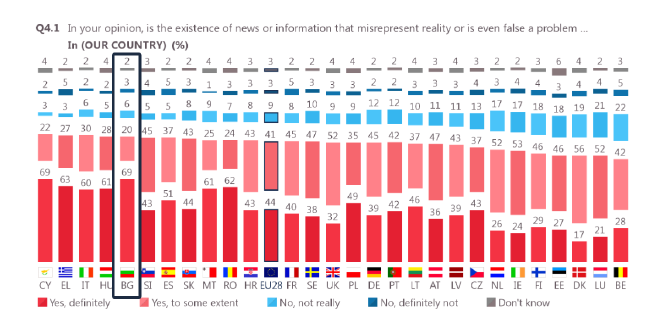
From the same survey, the same people indicated that they don’t feel confident enough to distinguish news that misrepresents reality:
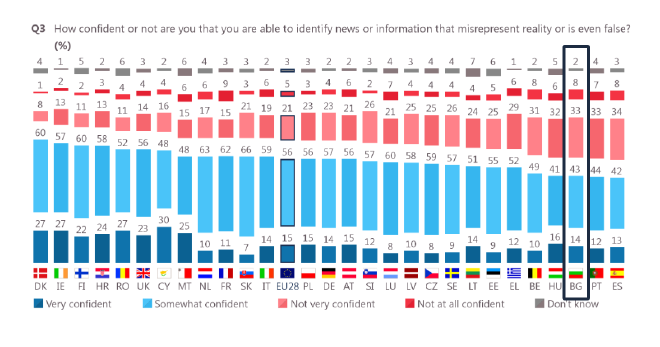
To add a bit of salt to the wound, Bulgarians rely much more on social media to keep track of news and current events than the average European:
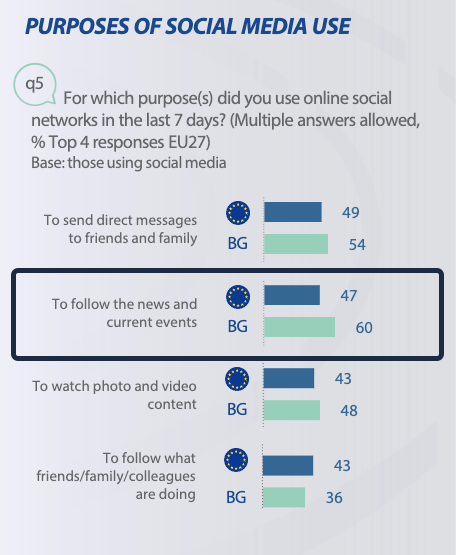
Combine these three, and you get a deadly mix. The worst thing that can happen is that dubious “media agencies” and individuals end up using BgGPT to create fake news by the dozen. Who cares if those have even the slightest sense of touch with reality? People won’t read beyond the clickbait-y headline; the rest is just SEO fluff, anyway.
Now, that’s not to say that I undermine INSAIT’s efforts. Not at all. On the contrary, I applaud the initiative and hope for the best. I only have one plea to the smart people behind the project - please do your best to moderate who uses the model and the purposes they are using it for. 🙏
Thank you for reaching this point! If you enjoyed this post or found it helpful, consider supporting my creative journey! Every coffee helps me keep writing and sharing new ideas.
Have something to say? Send me an email or ping me on social media 👇
Want to explore instead? Fly with the time capsule 🛸
You may also find these interesting
The Human in the Loop
Our desire for optimization and productivity drives us to abdicate effort and skill in exchange for rapidity
I Believe in Machine Learning. I Don’t Believe In AI
Machine learning rocks, but it’s far from intelligence. It’s advanced stats on steroids. Know its limits, roll with smaller models, and be the boss of your decisions.


